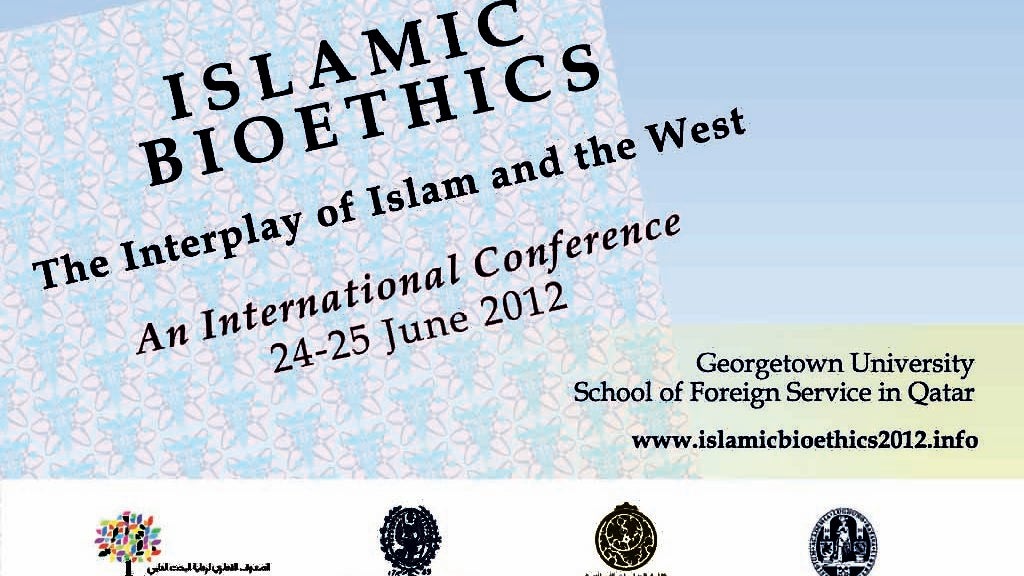Georgetown Convenes Global Perspectives on Religion and Science at Regional Islamic Bioethics Meet

Leading local and international thinkers, practitioners and experts on bioethics will gather next week at Georgetown University School of Foreign Service in Qatar to explore the sensitive and often blurry lines between religion and science at a conference on Islamic Bioethics.
Islamic Bioethics: the Interplay of Islam and the West creates a rare opportunity for direct engagement between those working in bioethics in the Western and Muslim worlds. Guest speakers include renowned Islamic scholar Dr. Tariq Ramadan, Professor of Contemporary Islamic Studies at Oxford University and director of the Research Center for Islamic Legislation and Ethics (CILE) in Doha, and Dr. Henk ten Have, director of the Center for Healthcare Ethics at Duquesne University, Pittsburgh.
“Bioethics is a recent discipline that arose from the need to find answers to moral and religious questions that come about during medical practice and research – whether for the researchers or the subject, the practitioner or the patient,” said Frieda Wiebe organizer from Georgetown University School of Foreign Service in Qatar.
“The interplay of Islam and the West has been one of the front-page issues in both socio-political and academic discourses for decades. However, the overarching conflict-tone has dictated the way the public and the academy portrayed the encounter between Islam and the West,” said Dr. Willem Drees, vice-dean of the Faculty of Humanities, Leiden University, the Netherlands.
Dr. Drees continued, “The field of contemporary Islamic bioethics is the main focus of this conference in order to elucidate the possibility of having a rich and intriguing mode of encounter between Islam and the West.”
The two-day conference, which takes place on June 24 and 25, will also pay tribute to the ground-breaking Islamic Medical and Scientific Ethics database. Funded by the Qatar National Research Fund (QNRF), the multi-lingual, searchable database is the result of extensive research, lead by Georgetown University SFS-Q, that has brought together the writings of hundreds of scholars and theorists. An explanation of the database and its uses will be presented in a special workshop on the first day.
The conference also includes sessions on the theory and methodology of bioethics, as well as talks from scientists and practitioners who have encountered Islamic bioethics in the field, during the session Islamic Bioethics in Practice.
Dr. Ayman Shabana, Research Associate and Project Leader at Georgetown University School of Foreign Service in Qatar praised the initiative stating, “Hosting this conference and facilitating these research projects speak of the commitment of Georgetown University School of Foreign Service in Qatar to the advancement of scholarly research on Islam and the Muslim world and also to the promotion of a deeper understanding of the complex relationship between the Muslim world and the West.”